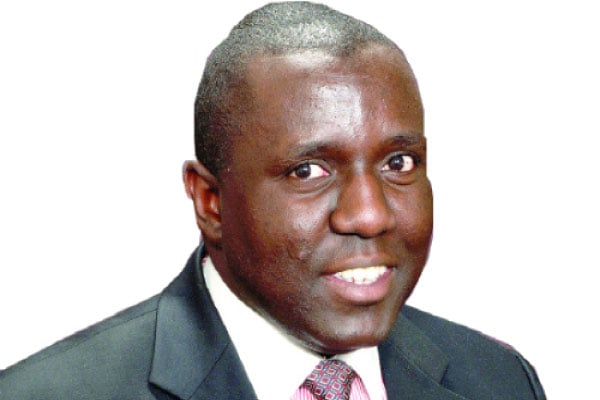Fiscal flexibility and gov’t reforms are big priorities

Author: Mr Karoli Ssemogerere is an Attorney-at-Law and an Advocate.
What you need to know:
- "Even the Opposition is happy to settle for their share in Parliament and elsewhere meeting the adage, keep your friends close, and your enemies closer”
The Minister of Finance, Mr Matia Kasaija, has a sparse waiting room. This is where investors, politicians, and lobbyists fall over themselves waiting for their turn to feel the ministerial levers pushed in their favour.
The Minister of Finance, yes, is responsible for the purse strings. He is also responsible for borrowing, tax policy, investment, planning, export processing zones, statistics, infrastructure through public-private partnerships. In short, he is really the second president in name. The Minister sometimes has to say some unsavory things. One of his predecessors, Jehoash Mayanja Nkangi (1989-1996), once said his detractors thought there was a lot of bang in his job which involved traveling endlessly to beg for money from donors. Both Mayanja Nkangi and latter day ministers have served at the helm of very powerful mandarins PS/Secretary to the Treasury (James Kahooza, Emmanuel Tumusiime Mutebile, Chris Kassami and Keith Muhakanizi).
Kahooza and Muhakanizi are related. Under-estimating the powers of the PS carries big consequences. First of all the law provides this officer and his appointees as accounting officers. Second their interpretation of liability, prioritisation of liabilities and management of the country’s debt stock gives them powers over life and death. Even Parliament cannot do much to create new spending through legislation without a certificate of financial implications under the Constitution.
Infact, by placing this pre-condition in the Constitution, Parliament cannot do much to the PS/Ministry of Finance except negotiate with him. Very often the easiest way to block expenditures (with the exception of security) is through the PS/Ministry of Finance. During his tenure, he often cooled down his boss President Museveni by telling him simply, there was no money. Uganda’s fiscal stewardship has, therefore, run on three pillars:
managing a small narrow tax base (Uganda only collects about Shs20 trillion out of a Shs 42 trillion budget); keeping Uganda’s debtors at bay (even though Uganda’s debt-GDP ratio has breached the 50 per cent limit heading Kenya’s way); keeping the cost of business low to attract investment, keeping wages low, and managing some very basic form of health and education social spending. To assuage this situation, our political system has hired a detailed system of political and social actors whom you ignore at your own peril.
In 2021, Uganda had quite a generation of office holders, LCI chairmen, LCIII chairmen, district chairpersons, councils, commissions etc. There was an over-estimate that these perhaps numbered 90,000. Then there was Parliament (perhaps only the House of Commons, Afghani Gyrga, the Indian Lower House, and the Chinese Assembly outnumber them); and the Cabinet. The President understood very early in his term that this dilution really carried very few political costs. Each area complains about marginalisation and lack of services but are very happy if their son or daughter is appointed minister. Even the Opposition is happy to settle for their share in Parliament and elsewhere meeting the adage, keep your friends close, and your enemies closer. Upon assumption of office, whether from the ruling party or the Opposition you are subject to standing orders.
So the transition of leadership at Finance (at Planning, General Duties and PS/Secretary to the Treasury), the Minister and his boss should strive to take some big steps. After Covid-19 everyone knows that some public healthcare mandate is now necessary [not in the form its currently delivered] especially for children and those over age 60. The same pandemic may require nationalisation of public education again even though the first task will be rationalizing payroll. Government schools upcountry are struggling for enrollment as teachers posted upcountry remain in Kampala moonlighting in private schools.
Whittling down the political class is tough luck. Next door Uhuru Kenyatta thought he would do this through the constitutional reform, most MPs even from Central Kenya can’t wait for him to exit. In the United Kingdom, Boris Johnson may shave some seats from Labour keeping them in the Opposition for a long-time, but the practicality and political price of this is not worth it.
So the Minister of Finance will continue to extract the best he can from oil and petroleum when they materialize (for new money), hope for better weather to shore up exports (coffee and tea) and continue packaging Uganda for tourists. After 4 medals in Tokyo, he has a head-start.




